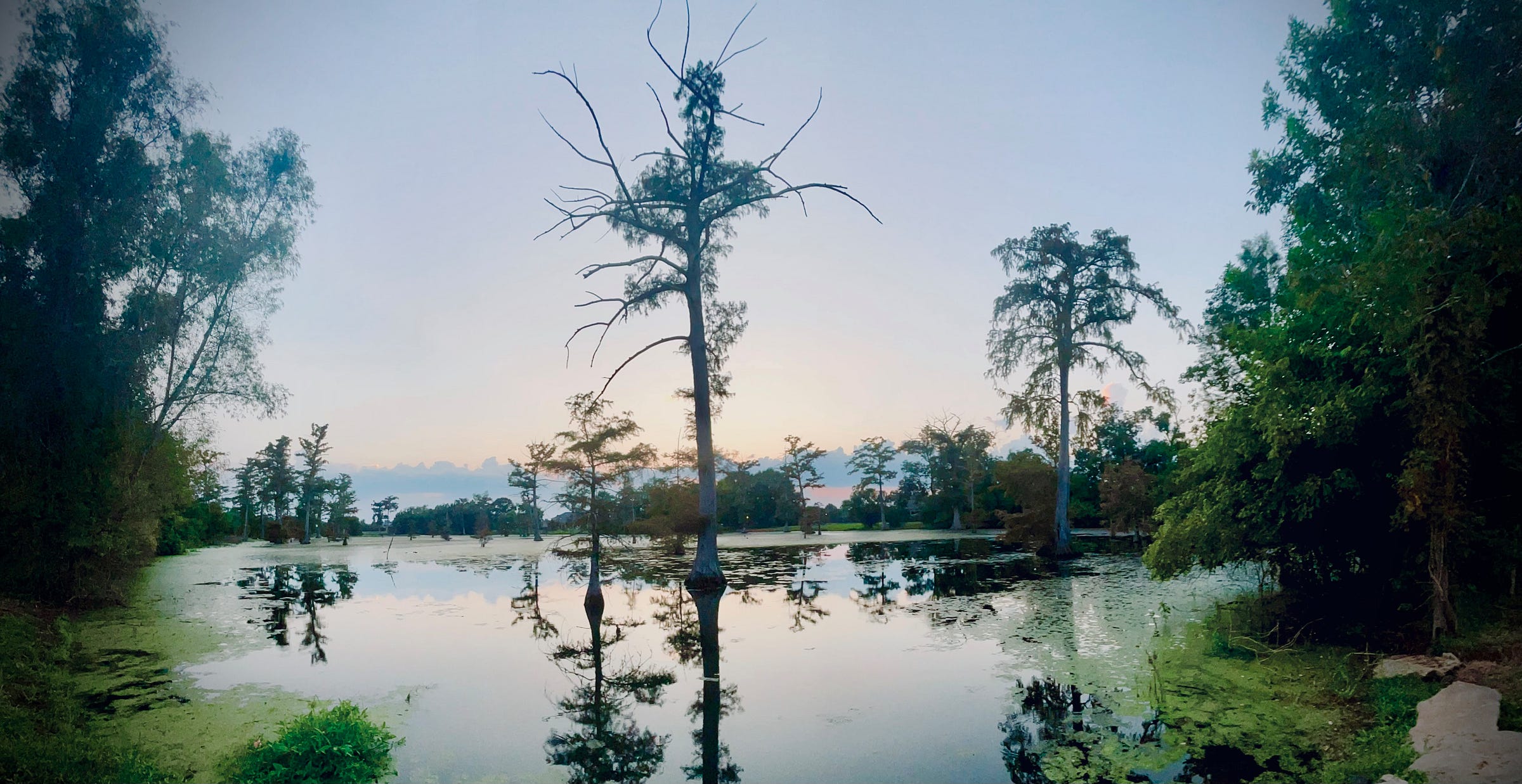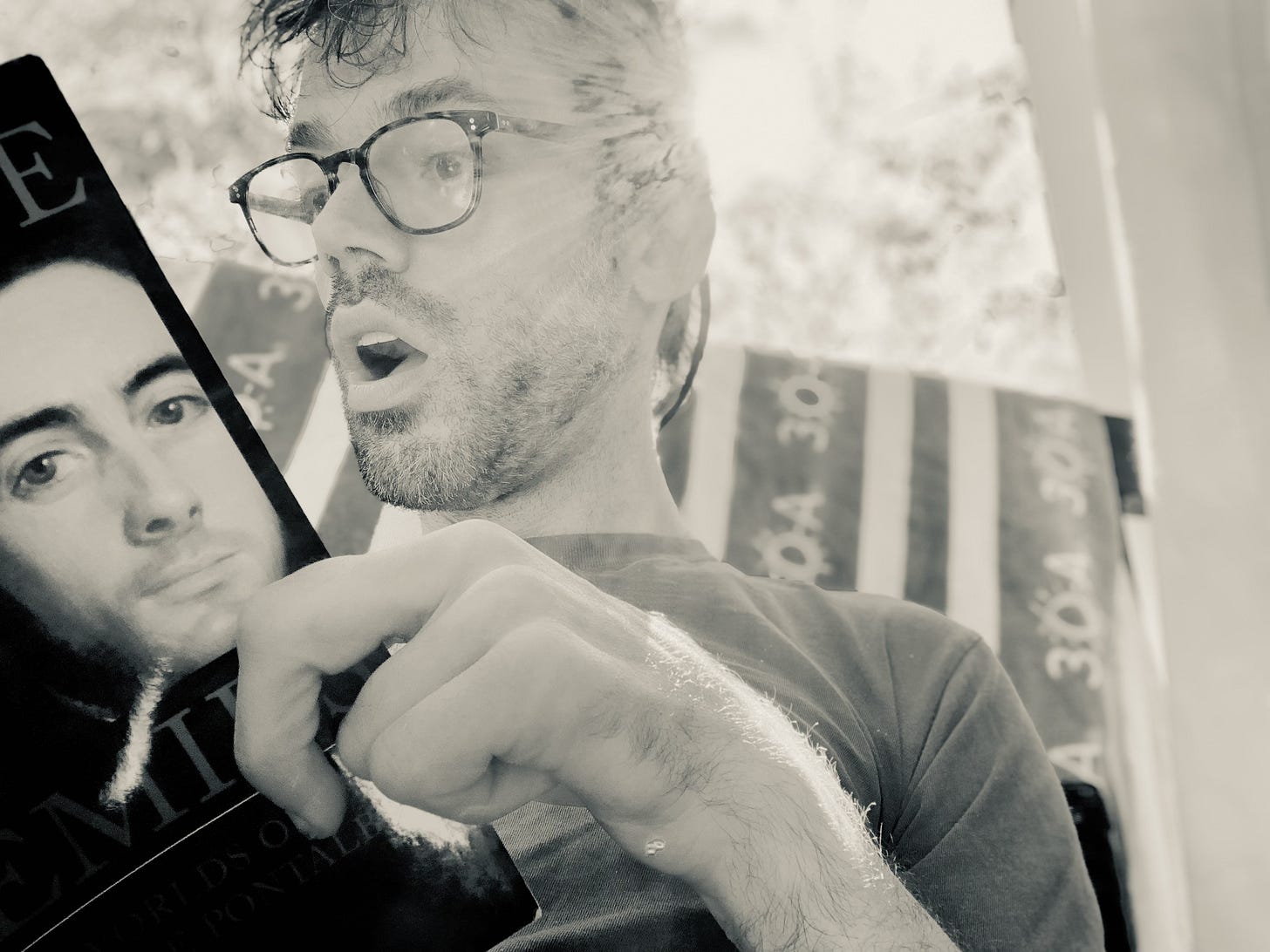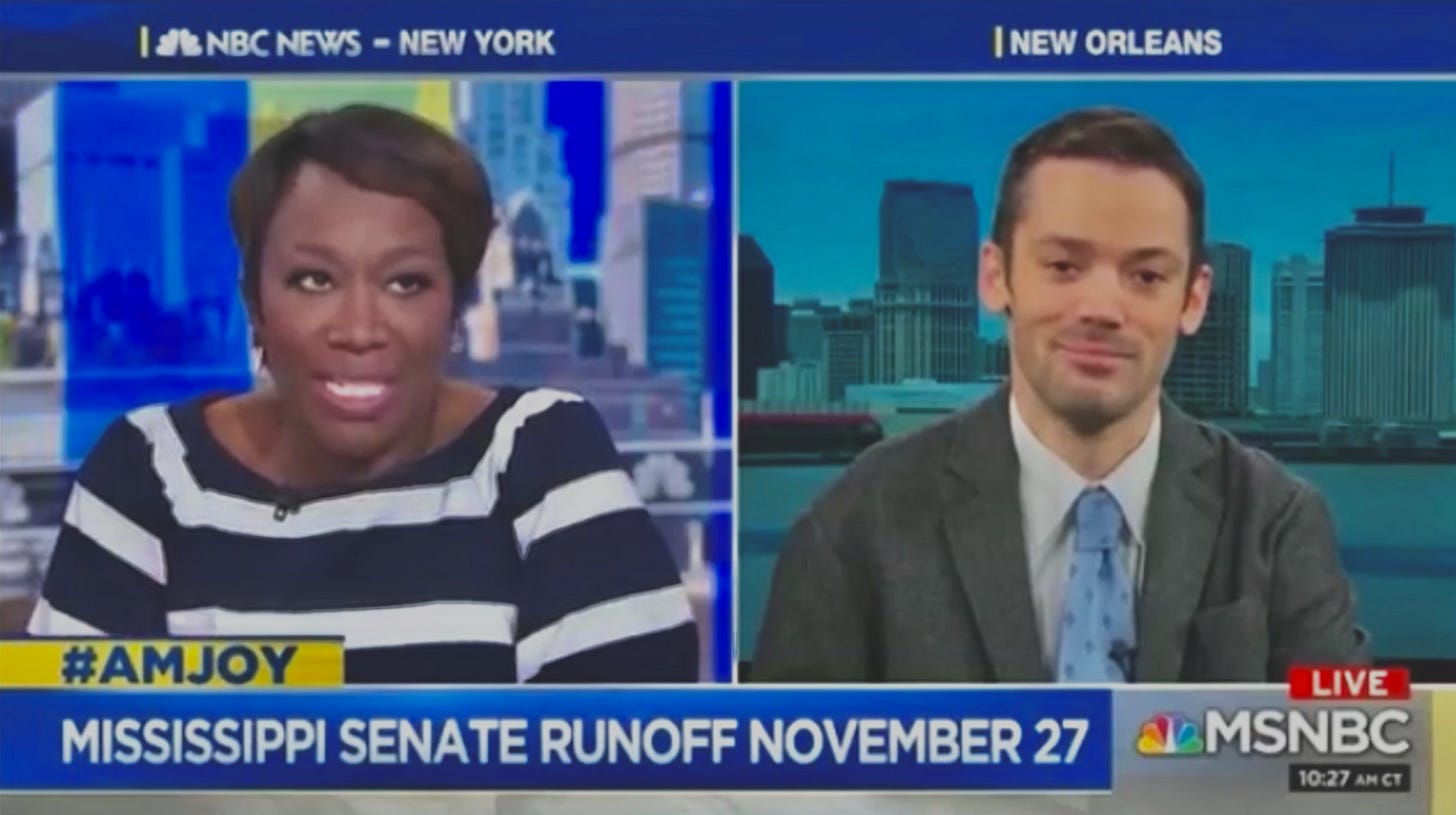Exposing the truths of the past. Reporting the struggles of today. Imagining the Louisiana of tomorrow.
A writer and journalist with deep roots in Louisiana, I’ve had a lifelong passion for telling stories that matter. My career has spanned multiple disciplines—law, literature, politics, and public service—but at the heart of everything I do is a commitment to truth and the art and the magic of storytelling.
I was born and raised in Alexandria, a 220-year-old, mid-sized city built alongside the Red River in the heart of the state and surrounded by sugarcane and cotton fields, the 604,000-acre Kisatchie National Forest, and history.
After Huey P. Long paved the state’s highways and President Eisenhower authorized the construction of America’s interstates, Alexandria became known as “the crossroads of Louisiana,” which, in the Deep South, holds both a literal meaning as a physical intersection and a symbolic significance, particularly in the blues music of the Mississippi Delta, as a place of profound decisions, spiritual encounters, and transformation. In Alexandria, the term “crossroads” is meant literally. Although Avoyelles Parish now claims to be the geographic center of the state,1 Alexandria is the hub at the center of the state’s spoke, which has provided me with a unique perspective on Louisiana, the land, and its people. Every corner of Louisiana is only a two or three-hour drive.
During the past decade, I lived in Baton Rouge for two years and New Orleans for six, followed by a year-long sabbatical in Charleston, South Carolina. Today, I am back in Alexandria, which I think deserves a new motto for the 21st century: “The place where Louisiana connects.”
“Lamar White, Jr. is a hero of transparency and truth-telling.”
—Rachel Maddow
“A Southern muckraker in the tradition of I.F. Stone.”
— The American Prospect
“There’s an old saying in politics about ‘knowing where the bones are buried.’ Lamar knows that in Louisiana, sometimes the bones are buried and sometimes they’re above ground. We need folks like him to hold our politics and our politicians accountable.”
—James Carville
“White best exemplifies the power of the pen and its ability to change the mighty.”
— The Advocate (Baton Rouge, Louisiana)
“There are few people in Louisiana who can get to the heart of a policy matter faster — and describe it with more clarity and vision — than Lamar White.”
—Robert Mann, political historian

Background & Experience
In 2005, I earned my bachelor’s degree in English and Religious Studies from Rice University, where I began exploring how language, history, and culture shape identity and power. Soon after graduation, I returned home to Louisiana to serve as Special Assistant to the Mayor of Alexandria (2006–2011). That role gave me firsthand experience in public policy and governance, and I saw both the daunting challenges and the real possibilities of building stronger, fairer communities.
During this time, I founded CenLamar.com, an independent site that became one of Central Louisiana’s first digital platforms for political commentary and investigative reporting. What started as a personal project quickly grew into a widely read and respected voice, cementing my belief in the power of digital journalism to disrupt stale narratives and inform communities.
In 2015, I earned my Juris Doctor from SMU’s Dedman School of Law in Dallas, sharpening the legal perspective I bring to journalism. Studying law taught me the value of evidence, precision, and accountability—qualities that guide every investigation I undertake.
Two years later, in 2017, I founded The Bayou Brief, Louisiana’s first nonprofit digital newsroom offering statewide coverage of politics, culture, and history. Through the Bayou Brief, I discovered how deeply readers crave journalism that is fearless, richly contextual, and unafraid to challenge the official story. My investigative reporting during this time earned national recognition, garnering coverage from outlets like The Washington Post, CNN, and The Daily Beast—and in the process contributing to public accountability.
Why Imagine Louisiana
In 2025, I launched Imagine Louisiana, a reader-supported publication dedicated to correcting the historical record and reporting on the decisions shaping our state’s future. Louisiana’s story has too often been distorted by those in power, by those who profit from silence, and by those who fear the truth. At Imagine Louisiana, I confront that record head-on: exposing what’s been hidden, correcting what’s been twisted, and amplifying voices that have been ignored.
But I don’t stop there. Journalism shouldn’t just hold the present accountable—it should also help us imagine what’s possible. I believe a better future for Louisiana begins with an honest reckoning of our past and the courage to write a new chapter together.
Today, I carry that mission forward through Imagine Louisiana. I consider myself more than just a reporter—I’m a writer who treats each story as a foundation for accountability and a spark for imagination. My work is about more than correcting the record; it’s about helping shape the narrative of a Louisiana that can fulfill its promise.
Louisiana isn’t just where I’m from—it’s who I am. Its history, with all its pain and beauty, has shaped me as much as its people and culture have inspired me. I know this state deserves journalism that reflects its complexity, honors its struggles, and dares to imagine something better. That conviction isn’t just my profession—it’s my calling. It’s why I do this work: because Louisiana deserves better journalism.
Journalism Highlights
One of the defining moments of my career came in late 2014, when I broke the story linking a high-ranking U.S. congressman, Steve Scalise, to a gathering of white supremacists. After more than a month of digging, I uncovered evidence that Scalise – then the House Majority Whip – had spoken at a 2002 conference organized by notorious Ku Klux Klan leader David Duke’s group[1]. I hit “publish” on December 28, 2014, and within hours the report exploded into the national conversation, picked up by major outlets from The Washington Post to cable news. Suddenly, I was fielding calls from reporters across the country and appearing on live TV; even MSNBC invited me on air to discuss the revelation[2]. It was surreal to see a blog post I wrote from my Louisiana hometown make global headlines, but more importantly, Scalise himself was forced to acknowledge and apologize for the event. That experience taught me the impact a single well-researched story can have in holding powerful people accountable.
A couple of years earlier, in 2012, I cut my teeth on another investigative scoop – this time in Louisiana’s education system. I exposed glaring issues with the then-Gov. Bobby Jindal’s new school voucher program revealed how taxpayer money was being funneled to private schools with embarrassingly substandard academics. In a series of reports, I documented that many of the approved voucher schools failed to meet the state’s basic curricular requirements – a violation of the Louisiana Constitution[3]. In fact, some of these schools were using curricula so weak that public universities (like those in California) wouldn’t even recognize their diplomas. My reporting boldly labeled the program a “scam” that put public funds in the hands of fly-by-night operators, and I wasn’t alone in that assessment. Not long after, the Louisiana Supreme Court struck down the program’s funding mechanism as unconstitutional, validating the core of what I’d uncovered. For me, it was an early lesson in the power of watchdog journalism: by shining a light on an unlawful scheme, we helped prompt authorities to address it.
I’ve also devoted much of my work to exposing corruption and financial misconduct in politics. In 2021, I turned my attention to Louisiana’s Attorney General, Jeff Landry, and his highly unusual campaign expenses. Digging through Landry’s campaign finance records, I discovered that his team had paid over $120,000 to an obscure LLC he himself owned, ostensibly for purchasing alligator hunting tags[4]. The twist? Those state-issued tags are free, which meant Landry was effectively routing donor money into his own company under false pretenses. I laid out the evidence in a detailed Bayou Brief investigation, tracing how his annual “alligator hunt” fundraiser turned into a vehicle for self-dealing. The story raised serious ethical questions about Louisiana’s campaign finance loopholes and put Landry in the hot seat to explain what looked like a blatant abuse of public trust. Uncovering that kind of home-grown corruption – and pressing for transparency – is precisely why I founded The Bayou Brief in the first place.
As a native son of the South, I’ve long been driven to report on civil rights and racial justice issues in our region. For over a decade, I’ve made it my mission to expose racism and bigotry in the Deep South[5], and that commitment came to a head during the 2018 U.S. Senate race in Mississippi. I obtained a startling video of Senator Cindy Hyde-Smith casually joking with a supporter that if he invited her to “a public hanging,” she’d be on the front row. Recognizing the gravity of that remark – in a state with a grim history of lynchings – I decided to release the clip on a quiet Sunday morning, to ensure it would get the attention it deserved. The impact was immediate. The video went viral, racking up nearly 4 million views on my Twitter feed alone[6], and it sparked national outrage. Hyde-Smith’s opponent, civil rights leaders, and even corporate donors quickly condemned her words. Some tried to dismiss the comment as a mere “joke,” but I refused to let that slide. I knew context mattered, so I published a Bayou Brief piece, “Cindy Hyde-Smith Was Not Telling A Joke,” explaining why her remark was so offensive and how it fit into Mississippi’s legacy of racist terror. That story not only forced a public apology from the Senator – it also underscored why confronting racism in politics is not optional. Through it all, I felt my role was to amplify the truth: to ensure that our leaders’ words, and the history behind them, are never taken lightly.
These key investigations – and many others – have earned attention far beyond Louisiana. Over the years, my work on public corruption, civil rights, and accountability journalism has led to opportunities I never imagined when I started blogging in 2006. I’ve been invited to share my reporting as a guest on national networks like CNN and MSNBC, and even the BBC, and I’ve been humbled to see my work profiled in outlets such as The Washington Post, The Advocate, and The Huffington Post[7].
Those moments of recognition aren’t about personal notoriety for me; they’re a reminder of why this work matters. I’ve always believed that good journalism can make a difference, whether it’s exposing wrongdoing at the highest levels or shedding light on injustices on our own Main Streets. That belief keeps me going. Every story I investigate is driven by the same mission: to speak truth to power, to give voice to the voiceless, and to hold our leaders accountable to the people they serve.
Selected Stories
“House Majority Whip Steve Scalise Was Reportedly an Honored Guest at 2002 International White Supremacist Convention” – CenLamar. This is the December 2014 article in which I revealed Rep. Steve Scalise’s attendance at a white nationalist conference. What began as a late-night research hunch turned into a bombshell report that prompted Scalise’s public apology and drew international media coverage[8]. It’s the story that put my work on the map and confirmed why shining a light on uncomfortable truths is so important.
“Bobby Jindal and John White’s Voucher Scam Violates the Louisiana State Constitution (And They Know It)” – CenLamar. In this 2012 exposé, I took on Louisiana’s controversial private school voucher program. I uncovered that state leaders were approving dubious schools with curricula far weaker than public standards – a direct violation of our state constitution’s requirements for funding private schools[3]. This piece called out the financial irresponsibility at play and foreshadowed the program’s downfall in court. It stands as an early example of my commitment to holding Louisiana’s policymakers accountable.
“Jeff Landry Reports His Campaign Spent Over $120K for Alligator Hunting Tags. There’s Just One Problem.” – The Bayou Brief. This 2021 investigative story exposed a glaring irregularity in Attorney General Jeff Landry’s campaign finances. I traced how Landry’s campaign funneled over $120,000 to a company he owned under the pretense of buying alligator hunting tags[4] – tags which, in reality, cost nothing. By following the money, the article brought to light a scheme of potential self-dealing and forced a public conversation about ethics and transparency in Louisiana’s political fundraising.
“Cindy Hyde-Smith Was Not Telling A Joke” – The Bayou Brief. Published in November 2018, this personal essay provides context and commentary on the infamous video I released of Mississippi Senator Cindy Hyde-Smith’s “public hanging” remark. In the piece, I explain why I refused to downplay her comment as a joke, recount the video’s journey to reaching nearly 4 million viewers online[6], and delve into Mississippi’s history to illustrate the weight of her words. This story mattered because it helped hold a public official accountable for rhetoric that echoed the state’s darkest chapters, reinforcing why confronting racism in our politics remains a critical part of my journalism.
[1] [2] Steve Scalise’s Alibi | CenLamar
https://cenlamar.com/2016/02/27/steve-scalises-alibi/
[3] Bobby Jindal and John White’s Voucher Scam Violates the Louisiana State Constitution (And They Know It) | CenLamar
[4] Jeff Landry Reports His Campaign Spent Over $120K for Alligator Hunting Tags. There’s Just One Problem. | Bayou Brief
[5] [6] Cindy Hyde-Smith Was Not Telling A Joke | Bayou Brief
https://www.bayoubrief.com/2018/11/13/cindy-hyde-smith-was-not-telling-a-joke/
[7] Lamar White, Jr. | Bayou Brief
https://www.bayoubrief.com/author/lamar_white/
[8] House Majority Whip Scalise confirms he spoke to white supremacists in 2002 - The Washington Post
Contact
I welcome feedback, story ideas, and conversations. For any inquiries, you can reach me via email at lamar@lamarwhitejr.com. You can also find me on Twitter as @LamarWhiteJr, where I frequently share updates on my work and engage with readers.
The U.S. Geological Survey itself warns there’s “no single accepted definition of a geographic center and no completely satisfactory method.” For example, the Census Cartographic Boundary Files intentionally remove big water bodies and tiny islands for mapping; that shifts a centroid inland and simplifies coastlines—moving your “center.” In a state like Louisiana, this has profound implications; there’s no easy way to simplify the state’s coastline. Avoyelles Parish’s claim that it is “the one true center” is an exercise in marketing, not cartography.







